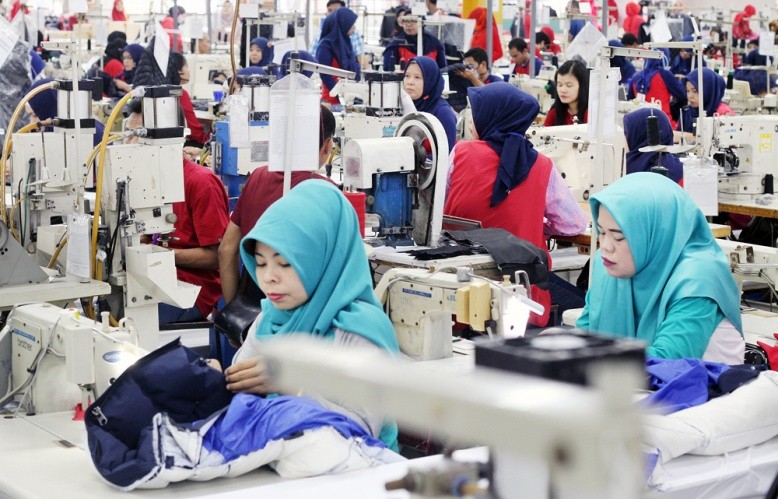Popular Reads
Top Results
Can't find what you're looking for?
View all search resultsPopular Reads
Top Results
Can't find what you're looking for?
View all search resultsIndonesia’s productivity lower than ASEAN countries, Japanese company survey says
Indonesia's score is lower than that of the Philippines, Singapore, Thailand and Vietnam.
Change text size
Gift Premium Articles
to Anyone
I
ndonesia’s productivity in the manufacturing industry is lower than that of its peers in Southeast Asia, a survey conducted by the Japan External Trade Organization (JETRO) has found.
The survey captured Japanese companies' perception of the business climate in 20 countries in Asia and Oceania, including in Indonesia, in which the companies have affiliations.
According to the survey, Indonesia’s manufacturing plants productivity only scored 74.4 with an assumption that the respondents’ Japanese companies’ productivity was 100. The country’s score is lower than that of the Philippines, Singapore, Thailand and Vietnam of 86.3, 82.7, 80.1 and 80.0, respectively.
Indonesia’s productivity is also lower than that of Laos and Malaysia, which stood at 76.7 and 76.2, respectively.
“If we look at the figure, I also want to point out that Indonesia’s productivity is below the ASEAN [average productivity score] of 78.2,” said JETRO’s Jakarta senior director, Wataru Ueno, during his presentation on Tuesday.
The government is striving to enhance the country’s workforce skills and productivity by developing vocational training centers, allocating more state budget funds for human resources developing and preparing a pre-employment card program to provide training incentives for workers, among other measures.
Indonesia needs at least 113 million skilled workers by 2030 to achieve economic growth in priority sectors, such as manufacturing, infrastructure and agribusiness — almost double the current number of skilled workers, according to the Research and Technology Ministry’s calculations.
One of the main reasons why Indonesia’s industry lags behind Thailand or Vietnam is the former’s dependence on commodities that hampers manufacturing sector development, Ueno explained further in a text message on Wednesday.
“Due to free trade agreements, many industrial products are exported to Indonesia, so the private sector chooses to invest in the resources sector, not the manufacturing sector, and avoids competition with [Chinese products],” he added.
He also highlighted the country’s lack of human resources, especially engineers.
The survey also revealed that Indonesia had the best productivity only in precision machinery where it scored at 100.25.
Indonesia’s productivity also exceeds Vietnam in only three industries, namely wood and pulp, general machinery and precision machinery, Ueno said.
JETRO also surveyed the appropriateness of minimum wage set by the local government from the perspective of productivity.
“More than half of the Japanese companies said they were not satisfied with the minimum wage from the perspective of productivity and this also happened in Cambodia. So as I explained, Cambodia and Indonesia’s productivity is very low, while the wage increase ratio is very high,” said Ueno.
JETRO senior director Takenobu Yamashiro said the survey compiled answers from 13,458 respondents from Aug. 26 – Sep. 24, 2019. In Indonesia alone, 614 companies took part in the survey.










